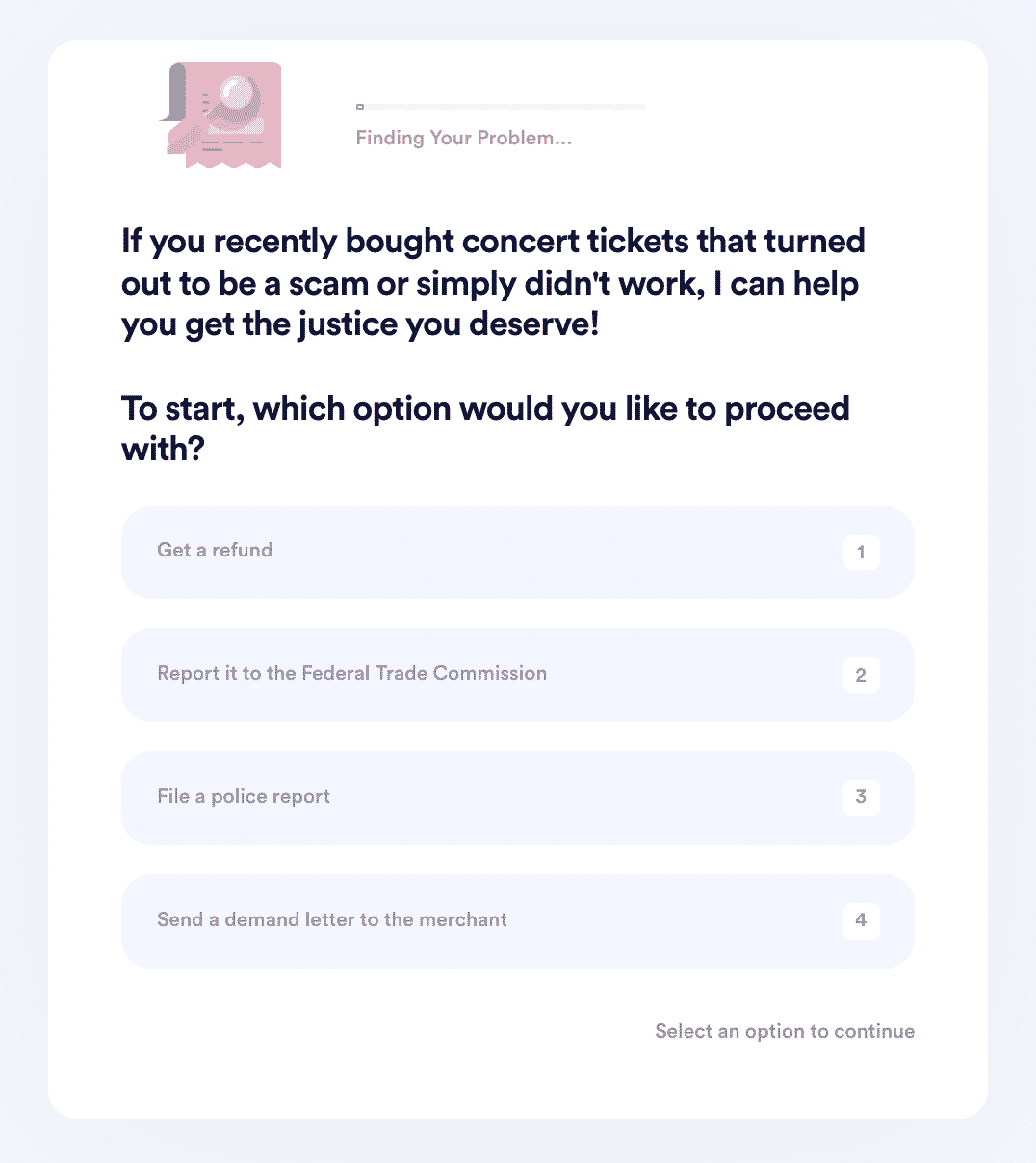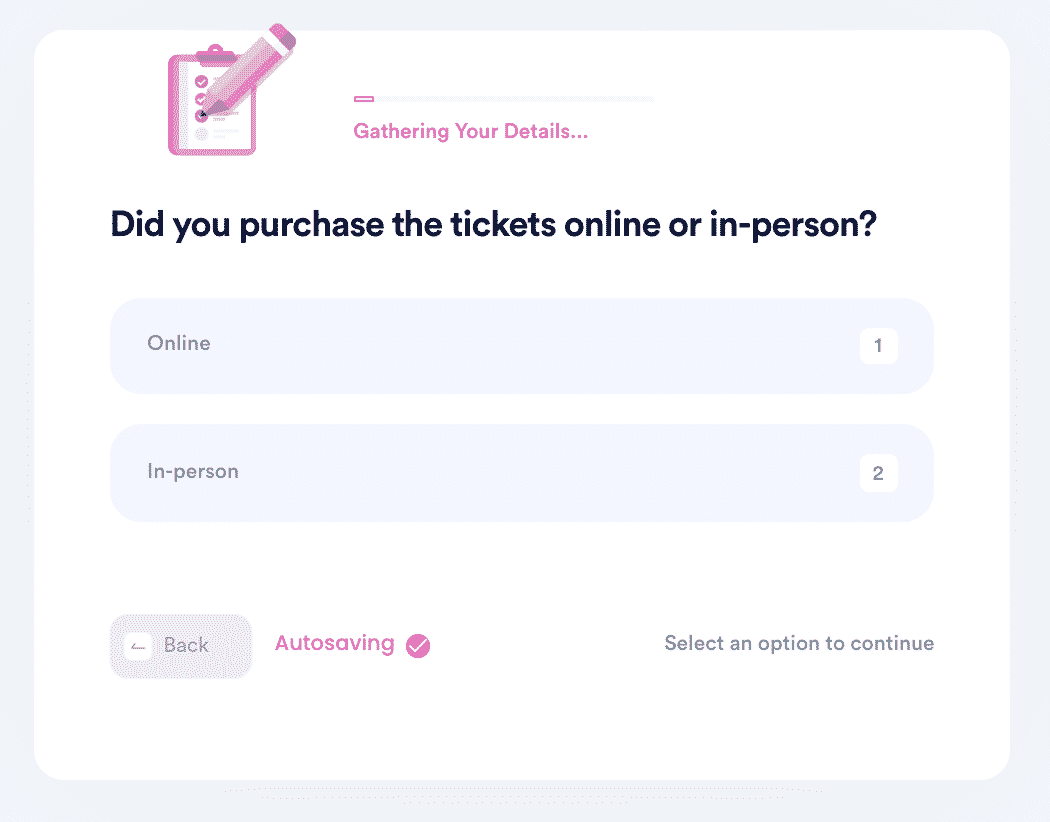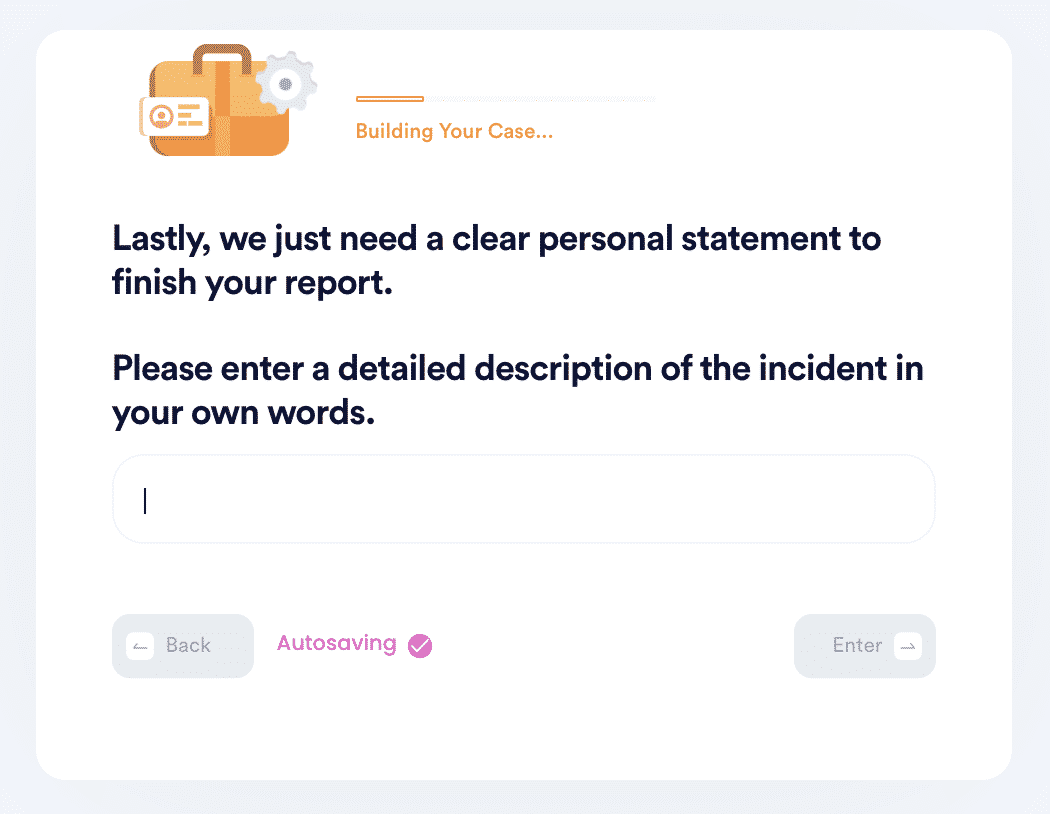All You Need To Know About Ticket Scams
Are you a victim of ? You're not the only one! Research shows that more than 5 million fake tickets are sold every year, with as many as 12% of people buying concert tickets getting scammed.
Protecting yourself from these scams starts with knowing how to tell if a ticket is fake and what to do if it is.
If you notice it is fake, you may take care of the problem yourself and file a police report, send a demand letter to the merchant, report the scam to the FTC (Federal Trade Commission), and/or file a chargeback. However, the process can be more time-consuming than you may think and is often complex to navigate.
Fortunately, DoNotPay can help with little effort on your part. Even better, DoNotPay’s platform can take care of other common scams with popular brands like Eventbrite, SeatGeek, Ticketmaster, and Craigs List.
Common Ticket Scams To Avoid
Ticket scams can come in a variety of forms, but the most popular to look out for include:
- You purchased a ticket that's invalid, and it doesn't work at the venue.
- You paid for a ticket, but it was never sent to you.
- You paid for a certain type of ticket but received a different one.
- You purchased fast lane passes that are no longer usable by the time you get to the venue.
If any of these scams sound familiar to you, then it's time to take action. No one deserves to lose hundreds of dollars in concert ticket scams without getting their money back.
How To Report Ticket Scams by Yourself
Steps for solving your issue can vary depending on what you want to do following the scam. For instance, if the scam was in person, it's recommended that you file a police report. This will require you to go to your local police department, discuss the incident in as much detail as possible, and fill out a form.
Another action you may want to consider is initiating a chargeback. This will require you to contact your credit card company or bank (whichever was used in the ticket scam transaction) to file a dispute and request a refund. Filing a dispute can sometimes be as easy as clicking a button on your app. However, you are, more often than not, directed to customer service via phone if you want to see your refund any time soon.
You may also want to send a demand letter to the merchant involved with the scam. This will require knowing who to send the letter to, where to send it, and what to say. This process can be the most complex to take on, but DoNotPay can easily take care of it on your behalf.
Report Ticket Scams to the FTC
Finally, it's important that you report the scam to the FTC to help stop the scammer from taking advantage of more victims like yourself. You can file a report with the FTC by:
|
|
|
|
| |
| |
|
|
DoNotPay Can Take Care of Ticket Scams for You
Whether you want to file a police report or chargeback, contact the merchant directly, or even report the scam to the FTC, DoNotPay can make the process much easier for you.
All you have to do is:
- Search "concert ticket scam" on DoNotPay and choose whether you would like to 1) File a chargeback to get a refund 2) File a police report (especially for in-person payments 3) Contact the merchant directly with a demand letter 4) Report the scam to the FTC.

- Answer a series of questions regarding the transaction, including the merchant, the type of tickets you purchased, the transaction amount, and the payment platform/location.

- Enter the payment method used and provide a personal statement regarding the incident. Upload any evidence you have and provide your e-signature.

And that's it. DoNotPay will file your report, letter, or chargeback on your behalf, so you can leave satisfied with a full refund without going through the many hassles of doing it yourself.
Why Work With DoNotPay?
Ticket scams are one of the most common types of scams, tricking thousands of ticket holders into giving over a substantial portion of their money without getting the tickets they paid for ahead of time. DoNotPay is committed to getting you the justice you deserve and the money that is yours.
That isn't all DoNotPay does, though.
DoNotPay’s services extend into other tedious and complex everyday issues you may have, including:


